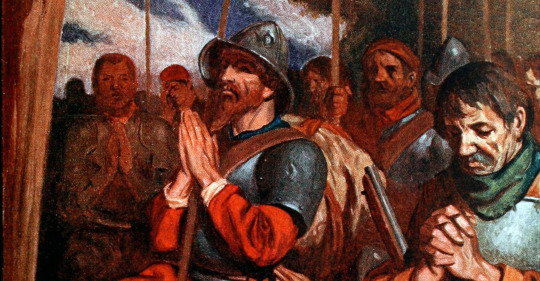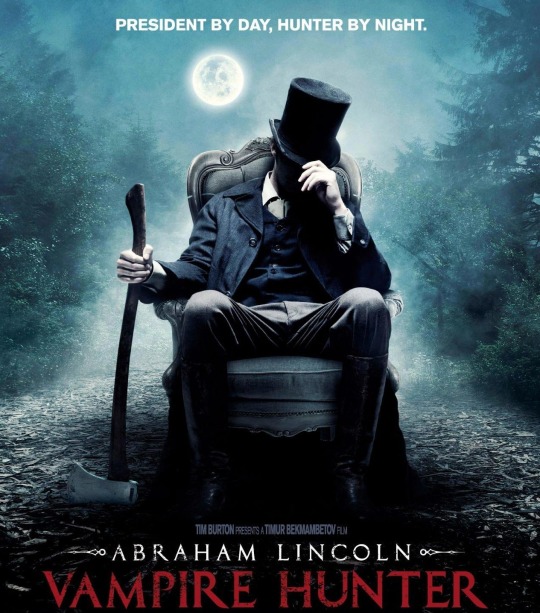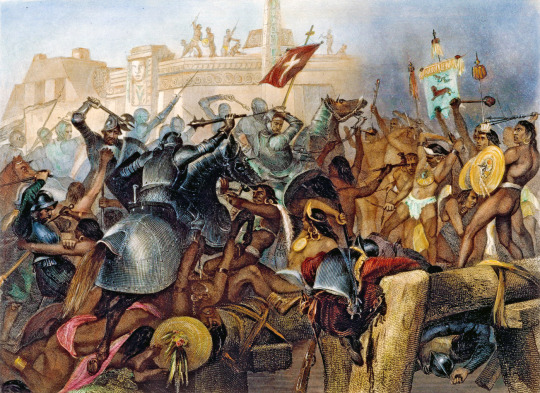#Mother teresa as a Indian Monk
Text
Mother Teresa: A Beacon of Compassion and Service
Mother Teresa, born Agnes Gonxha Bojaxhiu on August 26, 1910, in Skopje, Macedonia, emerged as one of the most iconic figures of the 20th century. Her unwavering dedication to serving the poorest of the poor earned her global acclaim and reverence. From her humble beginnings as a young girl in a devout Catholic family to her eventual journey to India as a missionary, Mother Teresa's life was a testament to selflessness and compassion.
Raised in Skopje, Agnes experienced the hardships of poverty and witnessed the suffering of those less fortunate from an early age. Her devout faith and desire to alleviate the suffering of others led her to join the Sisters of Loreto at the age of 18. Renouncing her birth name, she became Sister Mary Teresa, dedicating her life to the service of God and humanity.
In 1929, Sister Teresa arrived in Kolkata, India, where she taught at a school for girls and soon became deeply disturbed by the poverty and destitution that surrounded her. Moved by the plight of the poorest of the poor, she felt a calling within her to do more. In 1948, she received permission from the Vatican to leave the convent and venture into the slums of Kolkata to serve the most marginalized and neglected members of society.
With no resources except her faith and determination, Mother Teresa began her work by providing basic medical care, food, and shelter to the destitute. She founded the Missionaries of Charity in 1950, a congregation dedicated to serving "the hungry, the naked, the homeless, the crippled, the blind, the lepers, all those people who feel unwanted, unloved, uncared for throughout society." Under her guidance, the Missionaries of Charity grew rapidly, establishing homes, clinics, and centers for the needy across India and eventually expanding to other parts of the world.
Mother Teresa's approach to serving the poor was rooted in love and compassion. She saw the face of Christ in every person she encountered, regardless of their social status or background. Her unwavering commitment to the sanctity of human life earned her widespread admiration and respect, transcending religious and cultural boundaries.
Despite facing numerous challenges and criticisms, including allegations of financial mismanagement and criticism of her views on abortion and contraception, Mother Teresa remained steadfast in her mission. Her humility, simplicity, and boundless love touched the hearts of millions, inspiring countless individuals to join her in her mission of compassion.
In 1979, Mother Teresa's work was recognized on a global scale when she was awarded the Nobel Peace Prize for her humanitarian efforts. In her acceptance speech, she humbly declared, "I am unworthy," directing attention instead to the plight of the poor and marginalized whom she served.
Throughout her life, Mother Teresa remained dedicated to her vow of serving the "poorest of the poor" with unwavering devotion. Even as her health declined in her later years, she continued to work tirelessly, never seeking recognition or personal gain. Her legacy lives on through the countless lives she touched and the enduring impact of her humanitarian work.
Mother Teresa passed away on September 5, 1997, but her spirit lives on in the hearts of those who continue her mission of love and service. She may have been a diminutive figure in stature, but her compassion and love knew no bounds. Mother Teresa's life serves as a shining example of the transformative power of selfless service and the profound impact that one individual can have on the world. As she once said, "Not all of us can do great things. But we can do small things with great love."
#mother teresa Icon#complete story of Mother Teresa#Mother teresa as a Indian Monk#mother teresa work dedication
0 notes
Text
That Time The Dresden Files Was Still Accidentally Racist
youtube
Link to Part 1
In my last video I looked out how Jim Butcher’s Changes contains some troubling stereotypes about the maya, painting them as violent and their gods as demon vampires of the red court. I highly suggest going back and checking that out before continuing this video. In this one I’m going to look at why it’s troubling to cast Christianity as a positive and heroic force pitted against mayan vampires.
The Christian god exists in the Dresden Files universe, but has a very hands off presence. He does exert his power through subtle means though, and every Christian character, institution, or item in the series is unambiguously good and lacking in any kind of flaw. In Changes they’re also all positioned directly and explicitly against the red court.
The most blatant example of this comes in the final battle of the book at Chichen Itza. In the Dresden Files universe there are three holy swords that are physically incapable of being used for evil without shattering. One of Harry’s allies wields one in the battle, and at one point becomes possessed by a Christian angel or holy spirit, and shouts up at the red court vampires of outer night:
"False gods! Pretenders! Usurpers of the truth! Destroyers of faith, of families, of lives, of children! For your crime against the Mayans, against the people of the world, now will you answer! Your time has come! Face judgement Almighty!"
--Ch. 46, Changes

It’s important to place Changes’ representation of christianity in the broader context of media. In the last video I talked about how while human sacrifice was a legitimate portion of mesoamerican culture and religion, it’s overrepresented in media to the point where human sacrifice becomes the entirety of pre-columbian mesoamerica's identity and cultural legacy.
To illustrate why this is problematic, imagine for a moment if every representation of christianity focused on it’s obsession with sacrifice and suffering. And christianity does have just as much an obsession with both as the maya or aztec religions: Growing closer to God through suffering is a key aspect of christianity: it’s why martyr’s are so celebrated and turned into saints, why until the modern day mortification of the flesh through wearing a hair coat or fasting or engaging in self flagellation wasn’t unheard of among the clergy, and why even in the modern day mother Teresa believed in the beauty of suffering and may have withheld painkillers from patients in her care because of it.
And while drawing a thorned rope through the foreskin of your penis like mayan kings did for the prosperity of their kingdom rightfully sounds horrific, the ritual mutilation of genitals is one of the core tenets of another Abrahamic faith: circumcision in the jewish religion is not just a custom, but an actual covenant and contract with god.

But Christianity’s obsession with suffering isn’t something that’s reflected or engaged with in popular media. We may see Jesus on the cross in artistic depictions, but obsession with suffering doesn’t permeate and define Christianity in fiction the way human sacrifice permeates and defines mesoamerican culture and religion in fiction. For example, The Dresden Files puts a magical spin on only the positive aspects of Christianity, not the ones obsessed with suffering. As we discussed, christian characters and holy objects are unambiguously good in The Dresden Files.
These are the representations Jim Butcher chose, the side of christianity he decided to legitimize by giving magical weight in the books. In his fictional world we see vampire maya performing human sacrifices to quench their blood thirst, but we don’t see monks with backs bloody from the scourge performing dark rituals for Jesus, don’t see angels who want to cause mass suffering to kindle the light of god in people’s hearts, don’t see vampire conquistadors crossing to the new world so they can slake their thirst in the blood of millions.
That last image of conquistadors crossing to the new world and committing atrocities just so that a few souls could be saved through conversion? It’s not actually as fictitious as you might assume.

To fully understand why it’s problematic to cast christians as good guys against evil mayan gods, we have to look again at context and history. While nowadays we tend to think of the religious aspect of the conquistadors as a flimsy pretext in their true hunt for gold, the conquistadors were actually devoutly religious, and very much saw themselves as instruments of God. Here’s a passage from a book called 1491: New Revelations of the Americas Before Columbus that explains it well:
Famously, the conquistador Bernal Díaz de Castillo ticked off the reasons he and others joined Cortés: “to serve God and His Majesty [the king of Spain], to give light to those who were in darkness, and to grow rich, as all men desire to do.” In Díaz’s list, spiritual and material motivations were equally important. Cortés was constantly preoccupied by the search for gold, but he also had to be restrained by the priests accompanying him from promulgating the Gospel in circumstances sure to anger native leaders. After the destruction of Tenochtitlan, the Spanish court and intellectual elite were convulsed with argument for a century about whether the conversions were worth the suffering inflicted. Many believed that even if Indians died soon after conversion, good could still occur.
--Pg 143

The conquistadors very much considered there to be a moral dimension in their actions, that they could save the souls of the maya from false idols. And in the world of the Dresden Files, they were right: the christian god was good, the maya were ruled by demons, and no matter how many had to die along the way, the conquistadors saved them.
The book never explicitly states this, but it’s the only logical conclusion to draw from the world Jim Butcher’s created. It’s not a leap: it’s all there on the page, validating the atrocities the Spanish committed. It’s the equivalent of writing that there was a cabal of evil jewish wizards that really were manipulating post war Germany, or that africans really were half ape creatures that worshiped dark spirits.
And look, there’s always going to be issues imposing supernatural elements on the real world, on putting a magical spin to real events. Doesn’t it always invalidate real world triumphs and tragedies to say it was really magic at work or some secret society? I don’t think so, but I do think it matters how you do it. To illustrate what I mean, let’s look at another fantasy book that has vampires superimposed onto the real world: Abraham Lincoln Vampire Hunter, 70% of whose premise is right there in the title.

In the book, ante-bellum plantation owners were in reality vampires who enslaved black africans to use as cattle. So why isn’t that problematic, if making mayan gods vampire is? The answer is history, and what side of the it the story is taking. While it can be argued that it’s problematic for a white writer to be appropriating black suffering for his fantasy novel and that turning the cruelty of real humans into monsters lets them off the moral hook, the underlying thematic message is sound: African chattel slavery was bad, and the people who did it were bad.
And that thematic message about slave owners being bad is a message we still need to hear because it’s not an open and shut case in America today that the south were bad guys or even that slavery was bad.

And it matters that Jim Butcher is essentially putting a magical spin on racist conquistador propaganda, because the Dresden files is a hugely popular book series: as any of the covers are happy to tell you, Jim Butcher is a 1# New York Times best selling author. Changes isn’t an english class short story that will be read by fifteen people, it’s a book in a massively popular series that was read by millions. When a book reaches that popularity level, everything in it has an impact.
And what is the impact of Changes? Obviously it’s impossible to track, but as I mentioned in the last video the maya are by no means a dead people or culture, with around six million living in central America today. What’s the impact on public perception of them from a book like this? Just as it isn’t an open and shut case for some people whether black slavery was bad, it isn’t an open and shut case whether hispanics broadly, and central Americans specifically, are culturally valuable. Not when refugees fleeing violence riddled countries are caged, not when the president repeatedly uses racist dog whistles to refer to them.
Like I said in the last video, I don’t think Jim Butcher did any of this on purpose. I think the air we breath is filled with culturally and racially problematic ideas and he didn’t question them: of course the maya gods were violent, of course the christian god is good, and isn’t the idea of vampire maya just too badass to pass up?
Ironically if he’d stopped to think about his bias’ Butcher could’ve easily written Changes in a way that would’ve sidestepped most of the issue without even having to fundamentally alter the plot. One way to do it would’ve been to shift the red court’s origin to conquistadors who came to the new world for slaughter.

It could even be a plot element that Quetzalcoatl or a proxy of his shows up in the final battle to help Dresden. I mean, it’s not that much of a reach: in the original book Odin shows up to fight in the battle at Chichen Itza.
None of this is to say you can’t like the Dresden Files, or even Changes specifically. Hell, I got caught up in Changes as I was rereading it for this video and forgot just how exciting and well paced the books are. But if fantasy means anything, then we shouldn’t pretend it doesn’t when we run into something we don’t like, shouldn’t simultaneously say it can inspire us and that it’s just mindless fun, shouldn’t shy away from the problematic aspects of it. If anything we should engage with it more, expect more from those authors and stories we love and value.
#the dresden files#dresden files#jim butcher#racism#video essay#book#fantasy series#meso american#mayan#aztec#christianity#vampires
15 notes
·
View notes
Text
Ravi Zacharias Mysticism
Contents
Strangely incoherent mystical writings
Popular animated gifs
Education. william butler yeats
Susan mary pollexfen (1841-1900)
County sligo. yeats
Lighthouse trails author
Ravi Zacharias (born 26 March 1946) is an Indian-born Canadian-American Christian apologist. A defender of evangelical Protestantism, Zacharias is the author …
Jan 7, 2016 … Ravi Zacharias is an Indian born, Canadian-American Christian whose … At one point he praised Catholic Mystic Henry Nouwen, in addition to …
Salvation then can be attained not by work or by following some mystical paths but … Balajied Nongrum is a member of the speaking team with Ravi Zacharias …
Amy Orr-Ewing is the Training Director of the Zacharias Trust in the United … Often the picture in the mind's eye is of some strangely incoherent mystical writings …
Question: "What is splankna therapy and is it biblical?" Answer: Splankna is Christian energy healing. Proponents of splankna therapy call it “the first Christian protocol for energy psychology.” Splankna attempts to approach the energy psychology healing modalities from a Christian angle …
Ravi Zacharias. In April 1981 Daniel Yankelovich, a social analyst, …. The third is religion's move to the mystical. Buddhism has become one of the most popular …
Question: "Should Christians seek after spiritual enlightenment?" Answer: First let’s define “Christian.” According to the Bible, a Christian is a disciple of Christ (Acts 11:26), one who has made Jesus Christ the Lord of his or her life and has been “born again” into the family of God (John 3:3).
Mystical Christianity Quotes Wise and insightful quotes by prominent Christian mystics, such as Hildegard of Bingen, Meister Eckhart, St Francis, St Teresa of Avila, Jakob Böhme and more! Exorcism in Christianity is the practice of casting out demons from a person they are believed to have possessed.The person performing the exorcism, known as an exorcist, is often a
Mysticism Vs Religion Feb 11, 2011 … Mysticism In Religion: Three Ways to View the Sunset … Everything divides into oppositions such as liberal vs. conservative, with vested … Recent Examples on the web. higher frequencies music, chemicals, and mysticism were some of the means by which people tried to access the love and connectedness at the core of
Mysticism Research Mysticism Gif Explore and share the best Mysticism GIFs and most popular animated gifs here on giphy. find funny gifs, Cute GIFs, Reaction GIFs and more. Mysticism Meaning In Punjabi occult – Meaning in Punjabi, what is meaning of occult in Punjabi dictionary, pronunciation, … the mystical style of Blake … English to Punjabi Dictionary:
Interview with Ravi Zacharias by Richard L. Schoonover, associate editor of Enrichment journal. Attacks on Christianity and the church are rampant in today's …
Magic And Mysticism In Tibet Nazism and occultism describes a range of theories, speculation and research into the origins of Nazism and its possible relation to various occult traditions. Such ideas have been a part of popular culture since at least the early 1940s, and gained renewed popularity starting in the 1960s. There are documentaries and books on the topic,
Mysticism Word Whizzle Mystical Christianity Quotes Wise and insightful quotes by prominent Christian mystics, such as Hildegard of Bingen, Meister Eckhart, St Francis, St Teresa of Avila, Jakob Böhme and more! Exorcism in Christianity is the practice of casting out demons from a person they are believed to have possessed.The person performing the exorcism, known as an exorcist,
Mysticism In A Sentence Mysticism In Yeats Poems Early Years and education. william butler yeats was born on 13 June 1865 in the seaside village of Sandymount in County Dublin, Ireland. His mother, susan mary pollexfen (1841-1900) was the daughter of a wealthy family from county sligo. yeats started his long literary career as a romantic poet and gradually
by lighthouse trails author on January 18, 2019 at 1:20 pm . The Cloud of Unknowing – “Take a little word, and repeat it.” The Cloud of Unknowing, written by an anonymous monk, has passed under the radar of many church libraries, Christian bookstores, and theological seminaries and colleges.
0 notes